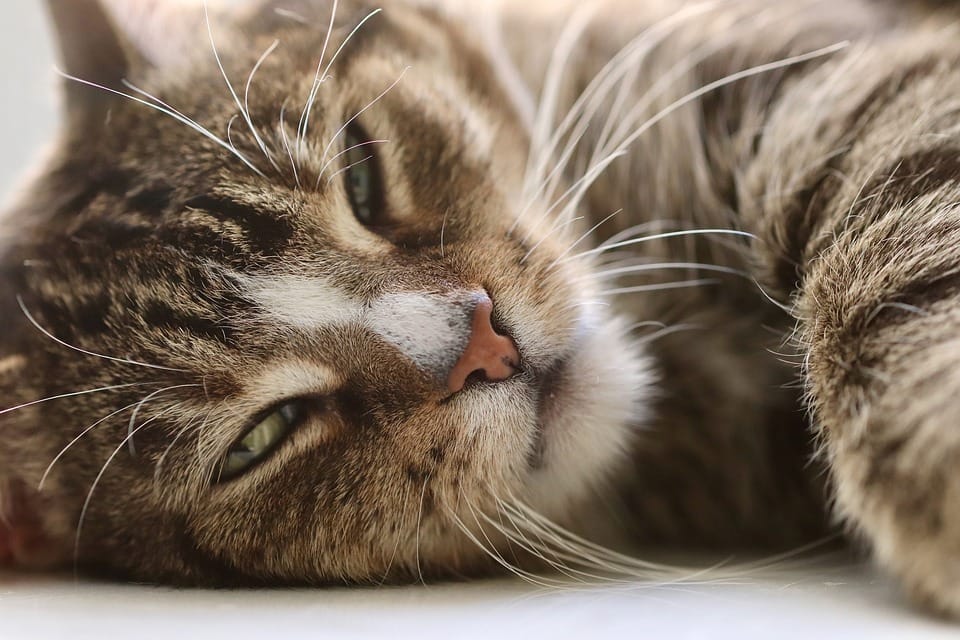Improve your understanding of feline health and wellness
Welcome to our “Ask Dr.Paola” series! Every Monday, we deliver expert insights from Dr. Paola Cuevas (MVZ) to enhance your understanding of feline health and wellness.
Whether you are a new cat owner or a long-time enthusiast, Dr. paola is here to address your most urgent inquiries. From dietary advice and preventive measures to resolving typical behavioral challenges, she offers valuable perspectives that will ensure your feline friend remains joyful and healthy. Keep an eye out for her expert recommendations on various topics that are crucial for you and your cat’s well-being, empowering you to make informed choices in caring for your beloved pet.
Have a question? Submit it here!
My Cat Has Become Aggressive—What Should I Do?
“Dear Dr. Paola,
I adopted Notts along with his brother Lumos from a shelter five years ago, and they initially got along well with my other five cats until notts was neutered.Since then, he has become increasingly aggressive towards Mr. Toes, who is now too scared to leave the kitchen or use the litter box properly—he’s even started eliminating on my kitchen counter! This situation has escalated over the past year; I don’t want to rehome them but need help!” – Sheila
Sheila, it’s clear how much you care about your cats and how distressing this situation must be for you. It’s heartbreaking when a once-peaceful home becomes filled with fear and anxiety among pets; I commend you for seeking solutions while wanting to keep them together.

Improve your understanding of feline health and wellness
The increase in Notts’ aggression over time raises concerns—not just for Mr. Toes
but also regarding the overall dynamics within your household of cats. This isn’t merely about occasional fights; Mr. Toes lives in constant fear which can lead to serious stress-related health issues.
Your first step should be ensuring there are no underlying medical issues contributing to Notts’ behavior changes post-neutering—conditions like chronic pain or hyperthyroidism could play significant roles in his aggression levels as well as Mr.Toes’ reluctance towards using the litter box due to emotional trauma.
A thorough veterinary examination is essential not only for Notts but also for Mr.Toes given his behavioral changes indicating potential stress-induced health problems.
You may need an immediate intervention by temporarily separating Notts from the others so that he can cool down while allowing Mr.Toes some space where he feels safe enough access food/water/litter without fear of being attacked again.
this separation period should be followed by gradual reintroduction techniques involving scent swapping combined with positive reinforcement strategies aimed at rebuilding their relationship through controlled interactions over time until they reach tolerable coexistence levels again!
Additionally enhancing their environment through vertical spaces such as shelves/cat trees/puzzle feeders will redirect energy positively away from conflict zones while synthetic pheromone diffusers might ease tensions further during this transition phase!
If these methods do not yield results after some time consider consulting professional help since severe inter-cat aggression often requires tailored approaches including possible medication alongside training interventions designed specifically around each individual animal involved! Remember: patience & consistency go hand-in-hand when restoring harmony back into any multi-pet household setting!
Sincerely,
Dr.Paola
My cat Has A Terrible Odor—What Could Be Wrong?
“Hello Dr.Paola,”
“My cat Pumba has developed an awful smell reminiscent of decay lately—is bathing him sufficient remedy?”
William , persistent foul odors emanating from felines typically indicate underlying medical conditions requiring attention rather than mere hygiene issues alone . While washing Pumba may provide temporary relief if caused externally , identifying root causes remains paramount . Cats groom themselves effectively ; thus ,unusual smells frequently enough signal deeper problems needing resolution promptly !
The source could stem either orally (due dental diseases/infections/oral tumors) or externally (infected wounds/severe skin conditions). If originating near rear ends impacted anal glands might contribute considerably too ! Given intensity described please seek veterinary evaluation ASAP—even teletriage services available online can assist assessing urgency level before deciding next steps accordingly based upon findings observed during examinations performed thereafter !
Are There Side Effects Associated With Prednisolone Use?
“I’m concerned about Dusty who takes Prednisolone—is heavy breathing common?” – Laurie
Hello Laurie! While corticosteroids like prednisolone have various effects on felines , labored breathing isn’t typically expected side effect associated directly unless exacerbated pre-existing conditions arise unexpectedly following administration thereof instead leading possibly serious complications requiring immediate attention thereafter if noticed persistently occurring beyond normal limits established previously beforehand ! Please consult veterinarian urgently regarding Dusty’s condition especially if rapid/labored/open-mouth breathing occurs indicating emergency situations warranting prompt action taken promptly thereafter accordingly based upon findings observed during examinations performed thereafter afterwards too!!
this article forms part our weekly Ask Dr.Paolas series.
https://urpetstore.com/cats-and-video-chats/









